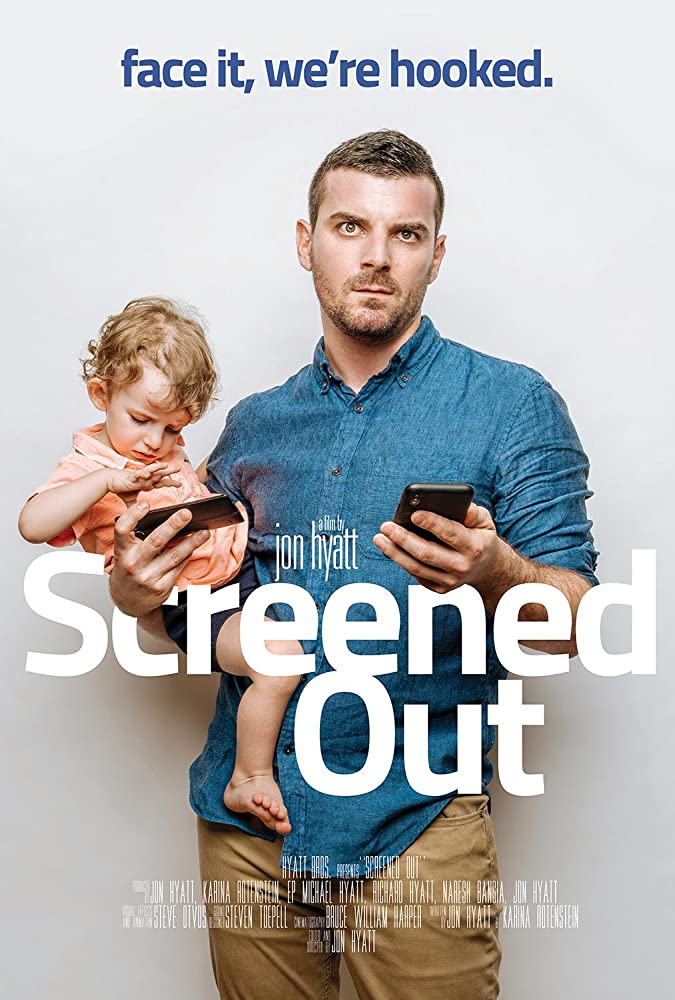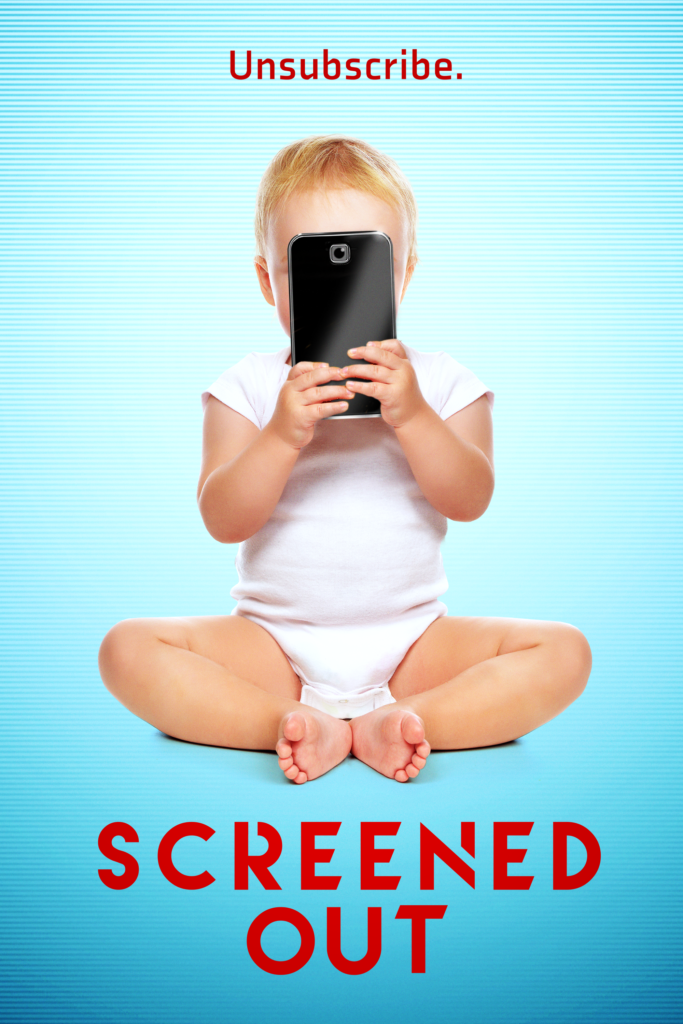
Run time: 1hr 11min
Director: Jon Hyatt
Stars: Jon Hyatt, Alicia Dupuis, Syd Bolton
Rating: 4/5
As the world continues under lockdown due to the COVID-19 pandemic, here we have a timely reminder about the pitfalls of spending too much time on screens using technology.
This feature-length documentary from the Canadian filmmaker Jon Hyatt follows him on his personal journey to find out how addictive and harmful technology is to his health and his young family’s and how much of a problem it is for society as a whole.
The documentary brings a convincing and compassionate argument about the overuse of technology in our lives, some of the behavioural problems associated with it and the tech organisations behind it all. It puts the spotlight on the concerns for the “iGen” – the generation of children now living their lives out on screens in a society that is becoming more and more dependent on technology.
Gathering insightful interviews from a number of experts in their field from doctors and psychologists to Silicon Valley tech experts including a condemning interview from the social media pioneer Sean Parker.
Surely common sense should prevail you might think on how much technology we use in our daily lives but it’s easier said than done. Jon delves into the psychology of addiction, which is ably demonstrated by a pigeon. He finds out about how gambling and fruit machines have been superseded, warp speed, by gaming, the internet and social media. So whose fault is all this? The tech entrepreneurs or its gullible consumers?
A quick visit to the tech museum brings an evolutionary perspective to the research from the beginnings of the earliest computational machines that inspired Bill Gates to the more elementary gaming consoles and the 1st Blackberry, which was affectionately dubbed at the time the “Crackberry”. Unwittingly a sign of things to come perhaps?

Looking at the progression of technology Jon and the museum’s curator feel there has been a change in the tech industry from the time of delight and even surprise of making things work to something else – tech companies were now deliberately developing products to get us hooked. This was an addiction created by design.
Jon’s investigation began as a heartfelt look at his own problems and concerns as a typical dad with a wife and 2 kids whose daily routine was all consumed by screens and technology. His research found that this, of course, wasn’t unusual at all and in fact, he was pretty lucky.
Speaking to children of the iGen we hear the stories about the daily pressures impacting on their lives: the distractions and the over usage but also the psychological impact of social media: the need to develop a perfect online persona, the feelings of stress, anxiety, jealousy and cyberbullying all of which have led to a real trend in depression and even suicides amongst young people – something too much television or computer gaming wasn’t ever attributed with before.
The health concerns are backed by scientific evidence and by these real-life stories on tech addiction. It’s a cry out to companies to be more socially responsible themselves for the products they produce and for governments to support new regulatory measures.
It takes a brief global perspective looking at some countries with even more advanced tech addictions like South Korea, the gaming capital of the world, where addiction clinics are a commonplace and where they have had to introduce a Cinderella law to stop kids gaming after dark. China, on the other hand, are embracing the power of technology with a social reward credit system that rewards its citizens for good internet use highlighting again the influence and power of technology on society that sounds more like an episode of Black Mirror every day.
Jon is an amiable guide taking us on his tech crusade and he’s not unlike Louis Theroux in his laid back interview style and commentary, never getting too excitable whilst tackling a meaty social issue.
If you are looking for some advice and inspiration on how to change your own or your family’s screen time then look no further than this.
- Julian Gaskell




